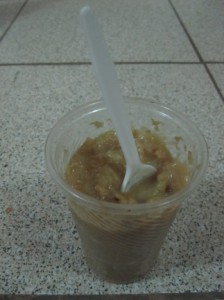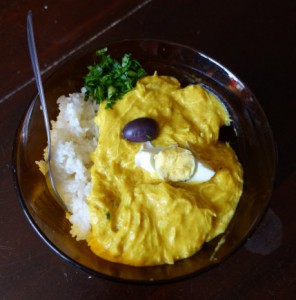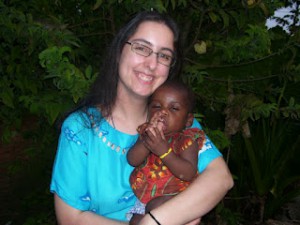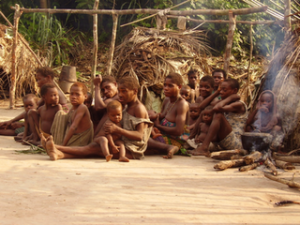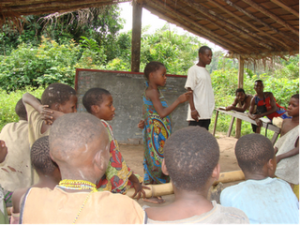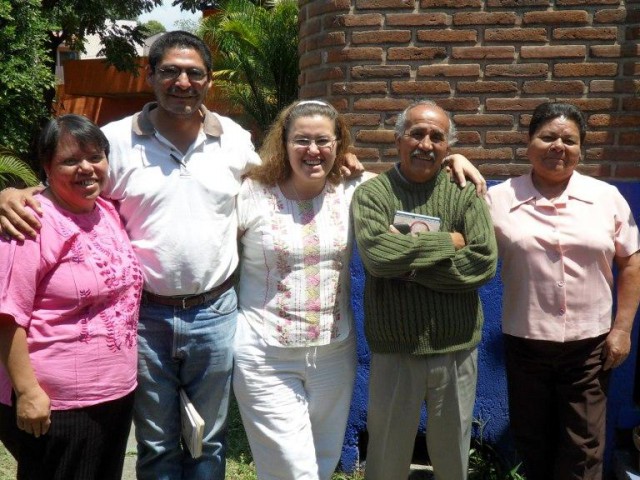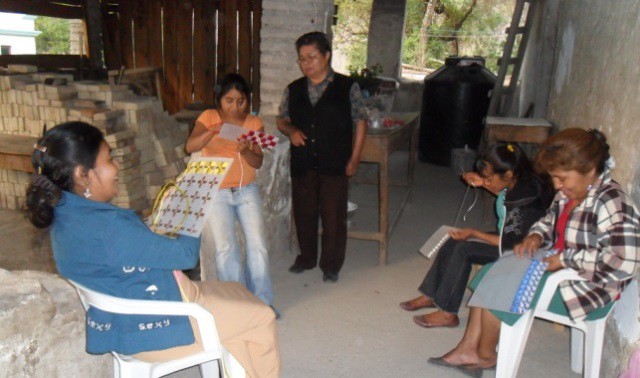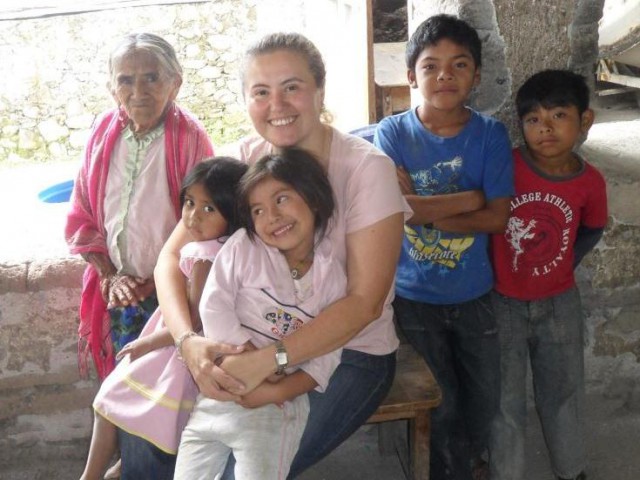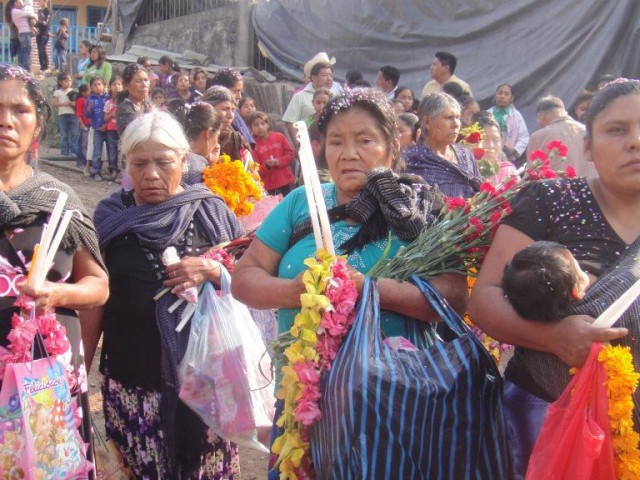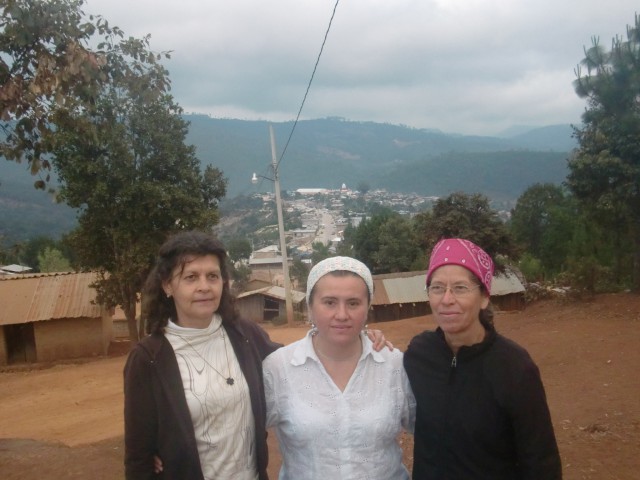Interview to Emily and Rafael Harrington in “Misión sin fronteras”.
A couple of lay people who found love and inspiration giving them up to children with different abilities and their families.
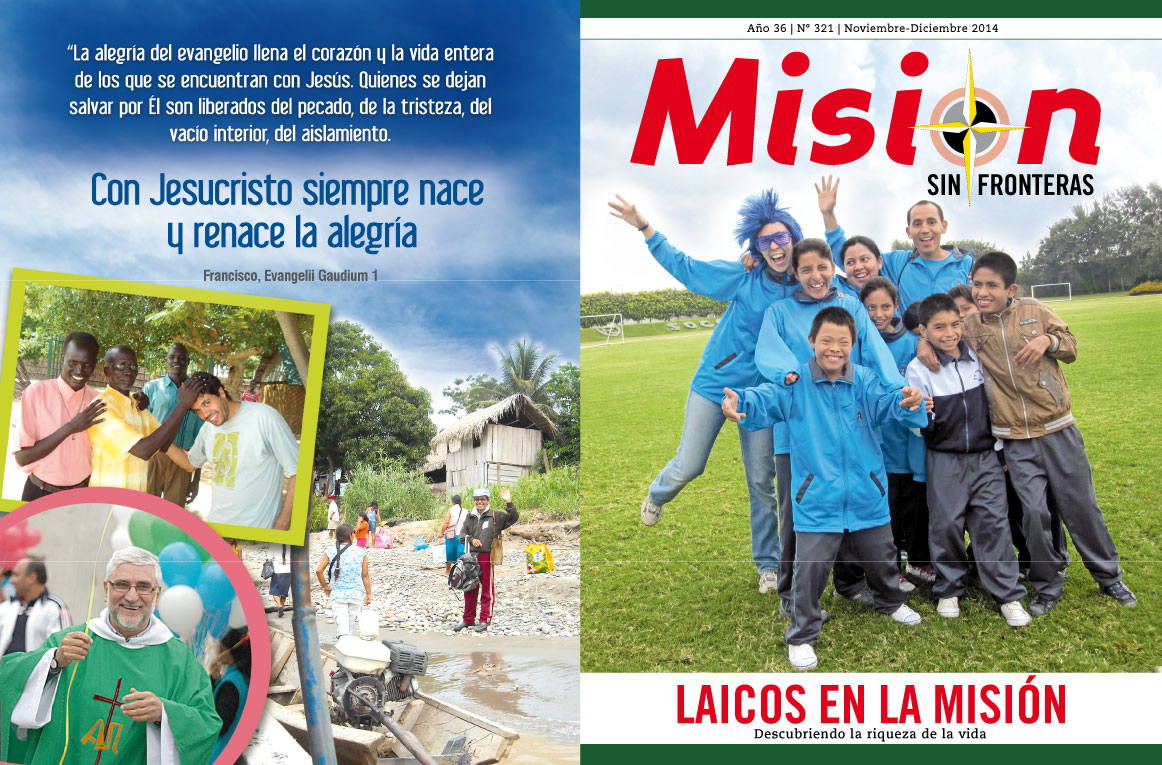 The Harrington lived their first year of marriage in the United States and were prepared to collaborate with the work of the Comboni missionaries in Peru. They came to Lima from Minneapolis, Minnesota, three years ago and the next day departed for Trujillo, where they were expected for 30 children of a school for special children. The couple ends this year the first period of work and assesses whether to renew the commitment. Challenged they tell us some details of their experience.
The Harrington lived their first year of marriage in the United States and were prepared to collaborate with the work of the Comboni missionaries in Peru. They came to Lima from Minneapolis, Minnesota, three years ago and the next day departed for Trujillo, where they were expected for 30 children of a school for special children. The couple ends this year the first period of work and assesses whether to renew the commitment. Challenged they tell us some details of their experience.
What activities have you carried out in these three years?
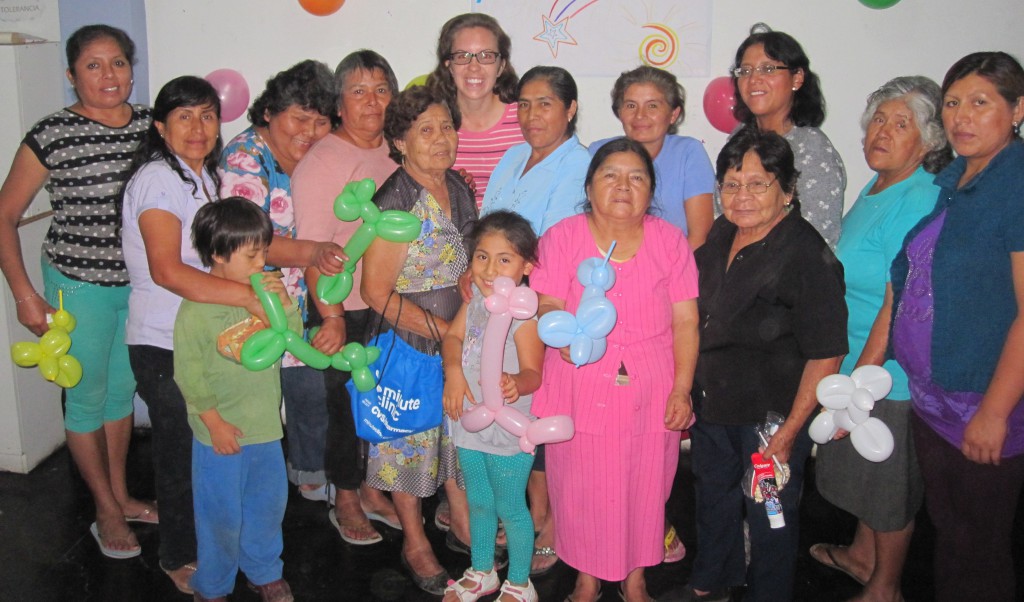 Emily: We work in three centers in the parish: Santa Rosa, Kumamoto and Villa El Paraíso, all on the outskirts of the district of El Porvenir. In Santa Rosa, I supported in the field of school psychology and Rafael in physical education. I participated in school for mothers and, during Lent, in a prayer group with my husband. In addition, a community of ladies get enthusiastic with baking, asked the school principal to give a workshop and I was elected as coordinator. Three times a week, we attended Kumamoto children, sometimes at Villa El Paraiso, in the organization of academic reinforcement, prayer and games.
Emily: We work in three centers in the parish: Santa Rosa, Kumamoto and Villa El Paraíso, all on the outskirts of the district of El Porvenir. In Santa Rosa, I supported in the field of school psychology and Rafael in physical education. I participated in school for mothers and, during Lent, in a prayer group with my husband. In addition, a community of ladies get enthusiastic with baking, asked the school principal to give a workshop and I was elected as coordinator. Three times a week, we attended Kumamoto children, sometimes at Villa El Paraiso, in the organization of academic reinforcement, prayer and games.
What challenges do found in your work?
Emily: The first months were used to meet neighbors. In Kumamoto, it was difficult to summon them because we do not live there and we knew just a few people. The pastoral center was closed and when we opened the doors no one entered. We had to go out and find the children. Now there are so many that we have to divide into small groups to work in comfort. In Santa Rosa, the challenge was to organize my work in the department of psychology at the special school, because I was mistaken for therapist. When someone needs this attention I refer to the appropriate person.
In the group of pastries, moms were happy from the first meeting. However, the challenge in that group was the lack of resources and small infighting. From these crises, they learned to work in teams, created rules and regulations and made better decisions.
Rafael: The first difficulty I encountered in physical education was the lack of adequate training to customize my therapeutic interventions. Each child has different abilities: one is in a wheelchair, some do not walk well or their intellectual state differs from the rest. I could not help everyone equally. My treatment has been general to include the majority. One or two children have been left out because they require the undivided attention of a person.
The second limitation was the lack of resources. For example the first year, the school did not even have a ball and gradually we acquired the basic equipment needed. Third, the school is small and the recreation space is not enough to perform well physical activities.
How do you help the mothers of the children?
Emily: Families usually do not easily accept to have at home a child with different skills. They have to live with the burden of the people on the street, which stares at them or makes inappropriate comments. Following that, we created a support group for moms who meet twice a year. There they have opportunity to talk about their experience. I accompanied the moderating an also control the time so that everyone gets the chance to talk and at the end of the cycle we do a little walk. It is an activity that ladies like and ask when we organized another meeting again.
What joys has given your work?
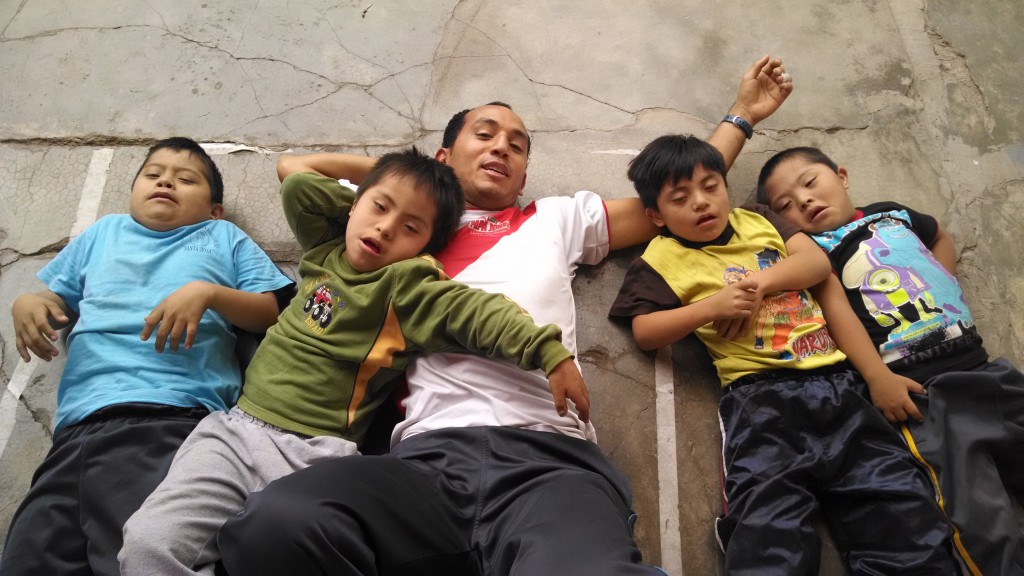 Rafael: One of the positive things has been encouraging basketball as the main sports. We achieved that each child has its own ball. Therefore, this year has increased the population of special children now attend 30. I like to see how each child progresses through simple little things that are great achievements for them. For example, there was a boy who could not jump, but after a lot of work and effort, at the end of year managed to do it. The smile you get when they achieve their goal is exciting. To see the fruit of their dedication is a gift from God. Another nice moment is to see how a young boy from his wheelchair participates in basketball, his teammates push him and he bounces the ball. Rarely score a basket, but when he get the ball, everybody clap and cheer him.
Rafael: One of the positive things has been encouraging basketball as the main sports. We achieved that each child has its own ball. Therefore, this year has increased the population of special children now attend 30. I like to see how each child progresses through simple little things that are great achievements for them. For example, there was a boy who could not jump, but after a lot of work and effort, at the end of year managed to do it. The smile you get when they achieve their goal is exciting. To see the fruit of their dedication is a gift from God. Another nice moment is to see how a young boy from his wheelchair participates in basketball, his teammates push him and he bounces the ball. Rarely score a basket, but when he get the ball, everybody clap and cheer him.
Emily: In the group of moms the activity that unites us is the pastry, but we are there for something else. Once I asked the ladies: “Why do you come?” They mentioned that they do it to make friends, share ideas or to have a space to unfold, but nobody remembered the pastry. They are there to something deeper and has been very good to see how developed the group. For example, two ladies lived on the same block for over twenty years but they didn´t know their names. Last year it was born from them to say a prayer at the beginning and end of the meetings. And even though not all are Catholic, because we have an Adventist lady, take turns leading prayer. This year we made pastries inclusion. We organized a share in the chapel and invite other children to create bonds of friendship. Unfortunately, some children copy the attitudes of their parents and there were children who did not want their special companions dealt them biscuits.
What do you take from this experience?
One comes to the mission with the idea that will give more than receive. But it is never like that. In the mission one receives more than you can give. For me the smile of a child is the most you can receive and the most he can give. I lived in an orphanage and when missionaries arrived to offer me an hour to play, that was enough. I don´t remember gifts or things, but the support of many people. My presence among them is the most important and I do the impossible to make a child smile.
Something you wish to add?
Emily: From the perspective of our friends in the United States, we have stopped our lives for three years to come to the mission. But for me it has been to discover the richness of life.
Rafael: In North America we have forgotten the simple things, our friends tell us that we have sacrificed our lives. They do not know that we are growing and we are uniting ourselves more. The mission has been an experience we could not buy with all the money in the world.






